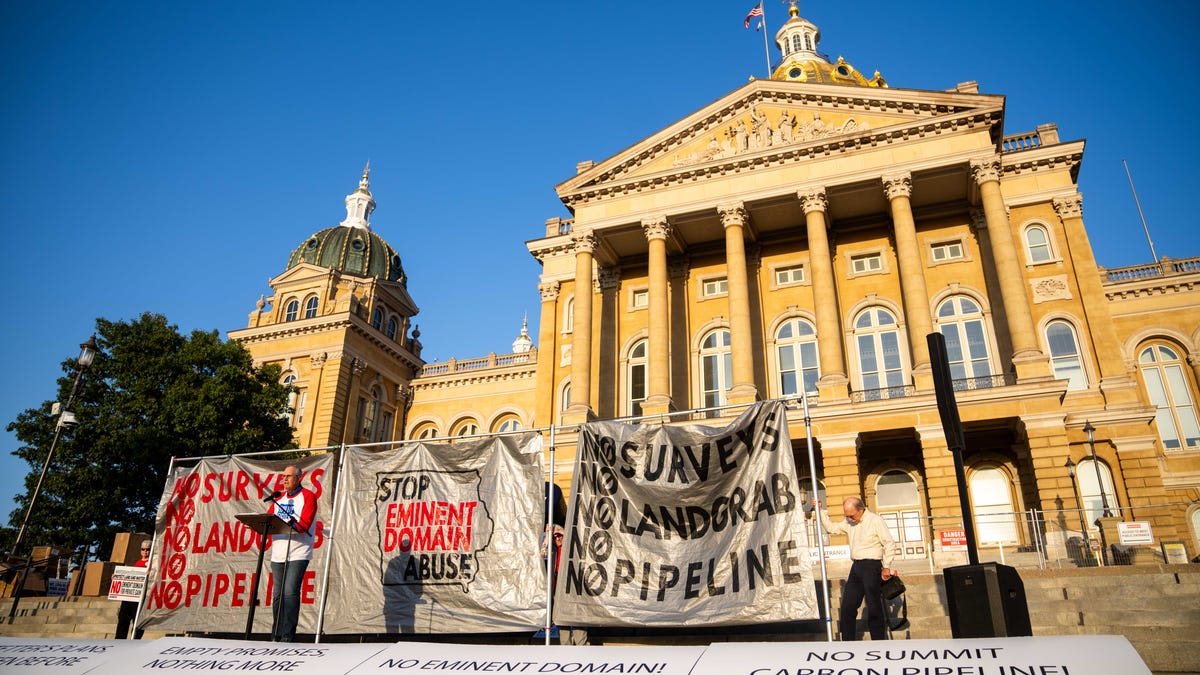North Dakota
Summit Carbon Solutions asks North Dakota to reconsider pipeline route denial, seeks new path around Bismarck

BISMARCK, N.D. — After having its carbon pipeline route permit rejected by North Dakota regulators, Summit Carbon Solutions is asking them to reconsider.
Included in Summit’s
Petition for Reconsideration
is an alternate route around Bismarck, farther east and north of the city.
The
Public Service Commission on Aug. 4 denied Summit’s application
for a route through the state, the last leg of a 2,000 mile, five-state pipeline project to capture greenhouse gas emissions from ethanol plants.
The PSC had asked for an analysis of a route south of Bismarck to get an underground storage site west of Bismarck.
In its petition, Summit is asking the PSC for a one-day rehearing “for the limited purpose of presenting witness testimony in support of this petition.”
In a news release, Summit say its petition also addresses these issues:
- Avoidance areas: Summit has rerouted or planned drills to avoid areas of concern, including game management areas and areas that may present a geological risk, such as a landslide.
- Cultural resource surveys: Summit is working with the State Historic Preservation Office to document the results of cultural surveys and is confident no historic or archeological sites will be affected by the project. Summit says it has completed cultural surveys on approximately 90% of the pipeline route.
Summit says the project will benefit the ethanol plants and corn growers, but some landowners have been resistant to provide a voluntary easement for the project.
Summit says nearly 80% of the right-of-way for the pipeline route has been secured through voluntary easements from landowners, including parts of the new pipeline route.
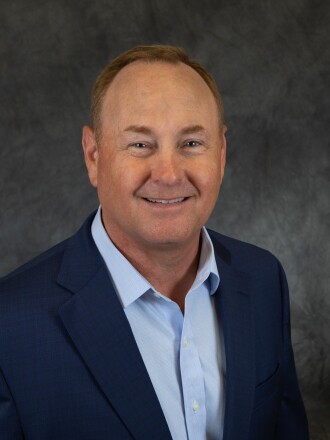
Courtesy of Summit Carbon Solutions
“Addressing the concerns of the ND PSC is a top priority for us, and we’ve worked diligently to revise our application accordingly,” Summit Carbon Solutions CEO Lee Blank said in a news release. “Our aim is to work collaboratively, listen to everyone’s input, and align our project with the long-term vision that North Dakota has for its energy and agricultural sectors. We are confident that our efforts will contribute positively to North Dakota’s future, and we’re excited to be part of this journey.”
Summit’s pipeline would connect ethanol plants in five states — Iowa, Minnesota, Nebraska, South Dakota and one in North Dakota, the Tharaldson Ethanol plant at Casselton.
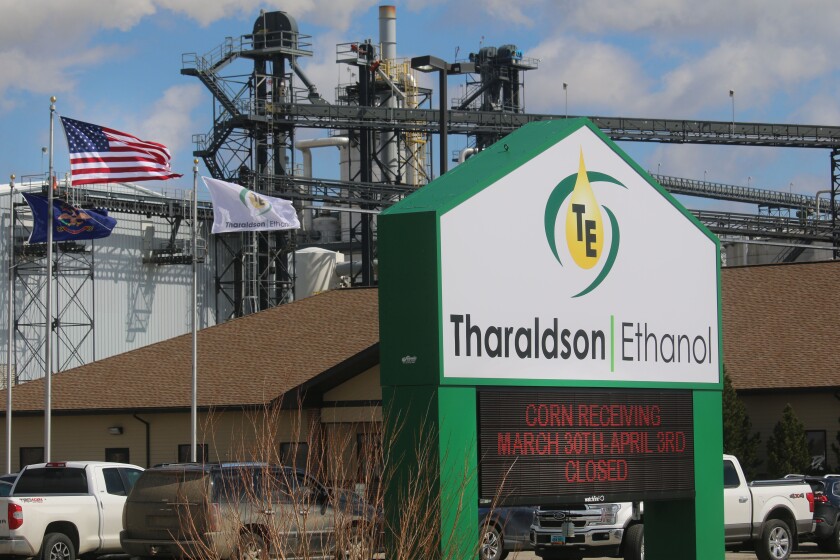
Mikkel Pates / Agweek file photo
Summit will begin a permit hearing in Iowa on Aug. 22, and in South Dakota later this year. It has begun the permit process on part of its route in Minnesota. There is no state agency with permitting authority in Nebraska.
An opposition group in Minnesota, CURE (Clean Up the River Environment) has
formally petitioned
the Minnesota Public Utilities Commission to halt its review of the Summit CO2 pipeline in Otter Tail and Wilkin counties. That section would connect the Green Plains ethanol plant at Fergus Falls to a branch of the pipeline in North Dakota.
“North Dakota’s denial sends a clear message to the other states’ regulators reviewing this project — it is not ready for prime time and poses significant threats to the environment and human health that cannot be mitigated,” Sarah Mooradian, CURE’s government relations and policy director, said in a news release. “Continuing the permitting process here in Minnesota for Summit’s half-baked plan would be illogical and irresponsible.”
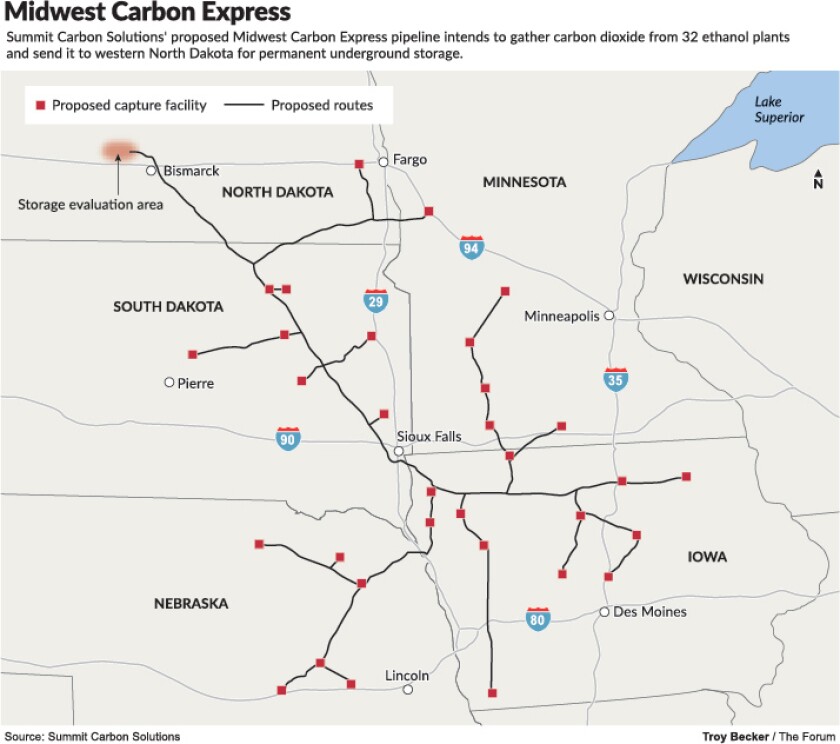
Reach Agweek reporter Jeff Beach at jbeach@agweek.com or call 701-451-5651.

North Dakota
Enrollment up nearly 4% at North Dakota public colleges, universities
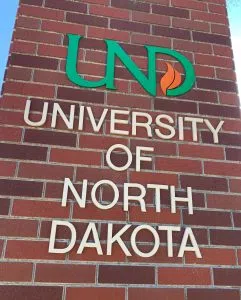
BISMARCK, N.D. (Jeff Beach/North Dakota Monitor) – Fall enrollment at North Dakota University System campuses is up nearly 4%, the highest enrollment recorded since 2014.
The 11 public colleges and universities have 47,522 students, according to figures released Wednesday. The system’s record enrollment was in 2011 at 48,883.
Williston State College saw the highest percentage growth in headcount with 11%, while North Dakota State College of Science reported a 9% enrollment jump, Bismarck State College reported an 8% increase and Mayville State University reported 7% growth.
The University of North Dakota, which leads the state in enrollment, saw a 5% increase and is at an all-time high with 15,844 students.
UND President Andy Armacost said the university has seen strong growth in new students the past two years.
“We’re grateful to be able to impact a large number of students with the great programs at UND,” Armacost said.
Bismarck State College’s enrollment of 4,549 students also was a record.
“Seven straight semesters of growth show that our polytechnic mission is not only resonating but making a real difference for students and the industries we serve,” Interim President Dan Leingang said in a statement.
North Dakota State University has recorded the exact same fall headcount for the past three years at 11,952 students. NDSU showed a 3% increase in first-year students, alongside a significant rise in new international undergraduate students, according to a news release from the university.
NDSU has 95% of students enrolled in in-person programs, the highest number across the entire North Dakota University System, the release said.
NSDU President David Cook, who is in his third year on the job, appeared remotely before a North Dakota legislative committee Wednesday.
“We have stabilized enrollment at NDSU, and I think we’re creating the right foundation for where we want to be,” Cook said.
Minot State University President Steve Shirley, in a Tuesday presentation to the State Board of Higher Education, said that while headcount at the school is flat, there is a 3% increase in full-time equivalent students that he said reflects a “nice little bump” in freshman enrollment — about a 15% increase.
“We’re excited about that,” he said.
Dickinson State University was the only school to show an enrollment decline, down 3%.
Dakota College at Bottineau had 3% enrollment growth. Lake Region State College and Valley City State University each reported 1% increases.
North Dakota
Board approves Brent Sanford as new ‘commissioner’ of North Dakota University System

MINOT — The board overseeing the North Dakota University System has awarded the interim chancellor the permanent role and changed the name of that role in the process.
The State Board of Higher Education unanimously approved Brent Sanford as commissioner of the system at its meeting Tuesday, Sept. 23, in Minot.
Sanford, a former Republican lieutenant governor, was
named the interim university system leader in April,
replacing Chancellor Mark Hagerott,
who stepped down around the same time.
In August, Board Chair Kevin Black told a legislative committee meeting in Dickinson that
he favored skipping a nationwide search in favor of giving Sanford the job.
Before the vote Tuesday, Black called it a “once-in-a-generational opportunity” to appoint Sanford, whom he said can make a true difference for higher education.
“For those reasons, I think doing the right thing and putting the right person in the seat trumps the process. In this case, I think it is absolutely 100% worth it,” Black said.
Other board members praised Sanford, indicating he was an obvious choice.
“I can always recognize the guy that’s got that ‘it factor,’ and in my opinion, Brent’s got that ‘it factor,’ and I’m excited about his opportunities to come and lead this university system,” said Member Tim Mihalick.
Said Member Danita Bye, “We could have done a national search and Brent would be our top candidate.”
Black said despite changing the title to commissioner, a motion that also received unanimous approval, the role of the position does not change.
“What I think the board is really saying through this motion is that we believe it’s important to align with what the Constitution says and what Century Code says,” he said.
To reflect the change, Board Vice Chair Donald “D.J.” Campbell laid out further amendments to other leadership titles.
The chancellor will become commissioner, the vice chancellor for academic and student affairs will become deputy commissioner/chief academic and student affairs officer, and the vice chancellor for administrative affairs will become deputy commissioner and chief financial officer, he said.
Before the vote on Sanford took place, he gave a presentation to the board and answered questions from board members.
Member Patrick Sogard asked about
a perception among some in the public
of Sanford’s lack of experience in academia.
Hagerott, who had led the university system since 2015, had a doctorate degree, and other recent chancellors have had master’s or other advanced degrees.
Sanford said his experience interacting with higher education as lieutenant governor was valuable.
He added that he was truly enjoying the role as interim chancellor.
“You can probably tell I do and I find it a better fit than I thought it would be, because it’s turning out that this job is very much a government leadership, government administrator, political administrator, type job that I’m used to,” Sanford said.
Also slated to be discussed Tuesday was
consideration of a policy change stating presidential vacancies at colleges and universities may be filled without doing a search.
North Dakota
One Up for the North Dakota Teacher’s of the Year is From the Grand Forks District

Emily Dawes. (Photo provided by the North Dakota Department of Public Instruction)
(KNOX) – A literacy specialist for grades kindergarten through fifth at Lake Agassiz Elementary School in the Grand Forks District, Emily Dawes is one of four finalists for North Dakota Teacher of the Year.
“I somehow was nominated. I hope it was a reflection of me as a teacher. So than I was chosen from a committee, so a committee chose me.” Dawes told KNOX News in an interview.
Dawes was a teacher at J. Nelson Kelly Elementary School when she was named as a contender for teacher of the year.
“I was at Kelly Elementary and I was happily teaching first grade and I absolutely loved every moment of it. But this opportunity to be a literary specialist came my way,” said Dawes.
The winner will be named in ceremony on September 26th in Bismarck.
-

 Finance6 days ago
Finance6 days agoReimagining Finance: Derek Kudsee on Coda’s AI-Powered Future
-
World1 week ago
Russian jets enter Estonia's airspace in latest test for NATO
-
North Dakota6 days ago
Board approves Brent Sanford as new ‘commissioner’ of North Dakota University System
-

 World5 days ago
World5 days agoSyria’s new president takes center stage at UNGA as concerns linger over terrorist past
-

 Technology5 days ago
Technology5 days agoThese earbuds include a tiny wired microphone you can hold
-

 Culture5 days ago
Culture5 days agoTest Your Memory of These Classic Books for Young Readers
-

 Crypto5 days ago
Crypto5 days agoTexas brothers charged in cryptocurrency kidnapping, robbery in MN
-

 Crypto6 days ago
Crypto6 days agoEU Enforcers Arrest 5 Over €100M Cryptocurrency Scam – Law360

